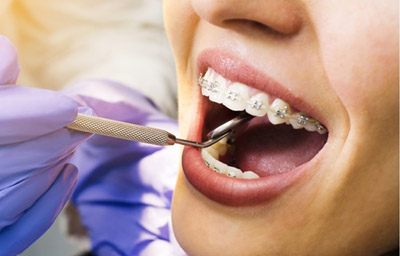The Facts About Causey Orthodontics Uncovered
Wiki Article
6 Easy Facts About Causey Orthodontics Described
Table of ContentsThe Best Guide To Causey OrthodonticsThe Ultimate Guide To Causey OrthodonticsSome Known Facts About Causey Orthodontics.The Best Guide To Causey OrthodonticsGetting The Causey Orthodontics To Work
Overlooking occlusal partnerships, it was common to remove teeth for a selection of dental problems, such as malalignment or congestion. The principle of an intact teeth was not commonly appreciated in those days, making bite connections appear unnecessary. In the late 1800s, the idea of occlusion was necessary for creating trusted prosthetic substitute teeth.As these ideas of prosthetic occlusion advanced, it became an important tool for dentistry. It remained in 1890 that the work and effect of Dr. Edwards H. Angle began to be really felt, with his contribution to modern orthodontics particularly noteworthy. Concentrated on prosthodontics, he taught in Pennsylvania and Minnesota prior to routing his interest in the direction of dental occlusion and the treatments required to keep it as a typical condition, thus ending up being understood as the "dad of modern orthodontics".

The principle of excellent occlusion, as postulated by Angle and integrated right into a classification system, allowed a shift in the direction of treating malocclusion, which is any deviation from normal occlusion. Having a complete set of teeth on both arcs was very searched for in orthodontic treatment due to the need for exact partnerships in between them.
Not known Details About Causey Orthodontics
As occlusion came to be the essential concern, face proportions and appearances were overlooked - family orthodontics. To achieve ideal occlusals without using outside forces, Angle proposed that having perfect occlusion was the most effective way to get maximum face appearances. With the passing away of time, it ended up being quite apparent that also a remarkable occlusion was not suitable when considered from an aesthetic viewpointCharles Tweed in America and Raymond Begg in Australia (that both researched under Angle) re-introduced dental care extraction right into orthodontics throughout the 1940s and 1950s so they could improve face esthetics while also making sure better stability concerning occlusal partnerships. In the postwar period, cephalometric radiography begun to be made use of by orthodontists for determining modifications in tooth and jaw position brought on by development and therapy. It came to be noticeable that orthodontic therapy can readjust mandibular development, leading to the formation of practical jaw orthopedics in Europe and extraoral force steps in the United States. These days, both functional devices and extraoral gadgets are applied around the globe with the aim of amending growth patterns and kinds. Subsequently, pursuing real, or at least improved, jaw relationships had actually come to be the major objective of therapy by the mid-20th century.
Examine This Report about Causey Orthodontics
 The American Journal of Orthodontics was created for this objective in 1915; prior to it, there were no scientific purposes to follow, neither any kind of specific classification system and braces that did not have functions. Until the mid-1970s, dental braces were made by covering metal around each tooth. With developments in adhesives, it came to be possible to rather bond steel braces to the teeth.
The American Journal of Orthodontics was created for this objective in 1915; prior to it, there were no scientific purposes to follow, neither any kind of specific classification system and braces that did not have functions. Until the mid-1970s, dental braces were made by covering metal around each tooth. With developments in adhesives, it came to be possible to rather bond steel braces to the teeth.This has actually had meaningful results on orthodontic therapies that are provided on a regular basis, and these are: 1. Right interarchal connections 2. Correct crown angulation (pointer) 3.
The advantage of the layout depends on its bracket and archwire combination, which needs only marginal cord bending from the orthodontist or clinician (best orthodontist). It's appropriately named hereafter feature: the angle of the slot and density of the brace base eventually figure out where each tooth is positioned with little need for extra manipulation
The Main Principles Of Causey Orthodontics
Both of these systems used the same brackets for each tooth and necessitated the bending of an archwire in three aircrafts for finding teeth in their preferred placements, with these bends dictating supreme placements. When it involves orthodontic devices, they are divided into 2 kinds: removable and dealt with. Detachable home appliances can be handled and off by the person as needed.
Thus, nearly all contemporary set devices can be considered variants on this edgewise home appliance system. Early 20th-century orthodontist Edward Angle made a significant payment to the globe of dental care. He produced four distinct device systems that have been made use of as the basis for many orthodontic therapies today, disallowing a few exemptions.
Getting My Causey Orthodontics To Work

The cord ended in a string, and to relocate forward, a flexible nut was used, which enabled a rise in circumference. By ligation, each specific tooth was affixed to this extensive archwire (orthodontist near me). Due to its minimal series of motion, Angle was unable to attain exact tooth placing with an E-arch
These tubes held a soldered pin, which can be rearranged at each appointment in order to relocate them in area. Dubbed the "bone-growing appliance", this gizmo was supposed to encourage much healthier bone growth due to its capacity for transferring pressure directly to the roots. Executing it verified bothersome in truth.
Report this wiki page